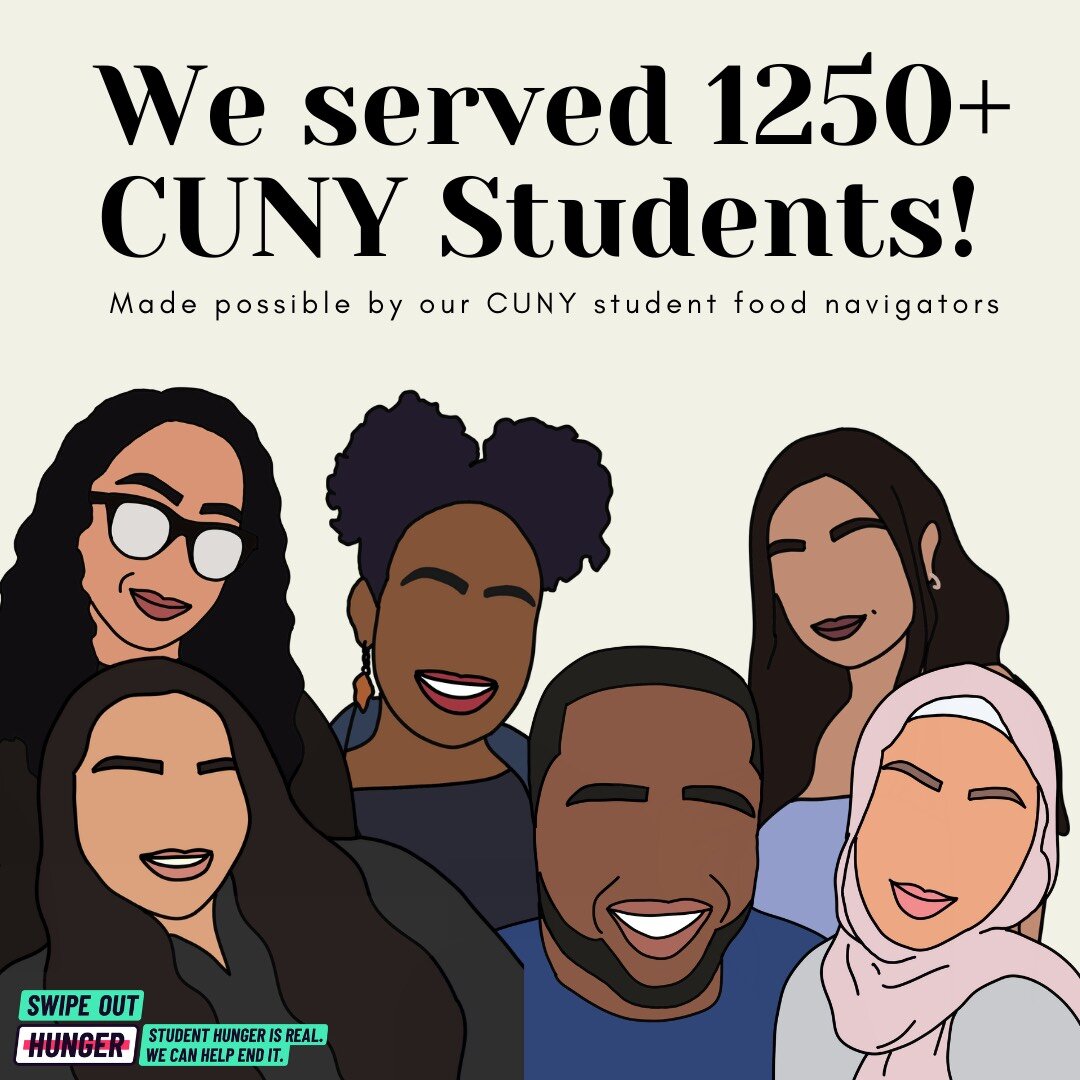When I worked for Single Stop at Hostos Community College, my primary role was doing student outreach. I was stationed at the bridge, which connects the school’s two main buildings and where life and mingling happened. I stood on that bridge for hours, waiting for students to come and show interest in the program. We tried everything, handing out flyers, stopping them to talk to them about the program; we even tried to lure them in with candy. Above all, we talked to them like humans and normalized the process. “Hey, I just went to the pantry, and they have veggies; you should go check them out,” was a frequent conversation starter. Suddenly we started receiving more students, which resulted in the pantry being empty for days due to the lack of funding and the sudden influx of participants. Students want to feel like the people serving them understand and care about what they are going through.
Students have many barriers to accessing food resources; bureaucracy, lack of funding, but most of all, stigma. If we can’t even acknowledge that college students face food insecurity and housing issues, we will not have an environment where students want to share their needs. Having other students doing food justice work normalizes accessing resources. Working at Single Stop, I learned that students have incredible networks where information travels at light speed, and if they are comfortable accessing a resource, they will let their circle know. Receiving resources from peers not only helps to end the stigma, but students can communicate in culturally appropriate ways, and having the resource information in their networks increases food access and knowledge of resources on CUNY campuses.
Single Stop is unfortunately not an available service at CUNY campuses since the university ended its contract in 2020. Single Stop was a critical service because of all the resources students could find there, and Single Stop’s offices became a hub for resources that ranged from food, health and legal aid, among many others. Peer support networks are essential for spreading the word about these resources and making the office a haven for students. However, this needs to be a consistent effort. It is a disservice for students and administrations to invest in a program and establish credibility with students to then just be shut down because of lack of funding and budget cuts. This is something that we are hyper-aware of at the Food Navigator Program. Since the program launched in January, we have served 1,225 students, connecting them with SNAP and other resources. As the word spreads within and out of CUNY, we strive to continue the program and get more funding. One would think it is everyone’s priority to keep college students from starvation, but it takes a lot of campaigning and work to maintain the program and serve students.
Despite the need for more peer support networks at CUNY, such as the Food Security Advocates and the CUNY Food Navigator Program, it is essential to reflect on security and privacy issues. With peer support networks, students get access to very sensitive information from other students. This was not stressed to me or program participants at Single Stop and may have contributed to low participation numbers. Working with the CUNY Food Navigator Program, all navigators and myself, serving as the manager, had to sign non-disclosure agreements. Knowing that other students will have access to their information could turn students away from accessing the resources they need. Having strict, specific, and transparent protocols in place should be a top priority for program managers so that students can feel safe navigating peer support networks.
Peer support networks are vital for students; they make the information come from classmates or people they know. It makes communication more digestible, and students know how to make the information get to their peers. Despite the wonders of this model, this is not a one-fix-all; funding and appropriate infrastructure to continue these programs and make them a reliable service are needed. It is also important to address the privacy concerns that students may have and take them seriously, as concerns for their private information and whether their peers will have access to it are more than valid. As a result, there should be clear protocols on using data and to what extent peers will have access to it.
By Karla Ignacio, CUNY Food Justice Leadership Fellow and Manager For The CUNY Food Navigator Program at Swipe Out Hunger
Karla Ignacio is a CUNY Food Justice Leadership Fellow and Manager for the CUNY Food Navigator Program at Swipe Out Hunger. She is a graduate of the CUNY Food Security Advocates, Hostos Community College and Lehman College, with a degree in Sociology.
